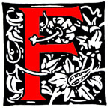 ine writing, like painterly painting, has always been with us. We will, I hope, never cease to admire it. The great prose stylists of the recent past, until Flaubert, were fine writers to a man. A surprising number of these — those I think of first, in fact — wrote nonfiction: Robert Burton, Sir Thomas Browne, Samuel Johnson, Thomas de Quincey, Thomas Macaulay, Ralph Waldo Emerson, John Ruskin, William James, Sir James Frazer. . . .
ine writing, like painterly painting, has always been with us. We will, I hope, never cease to admire it. The great prose stylists of the recent past, until Flaubert, were fine writers to a man. A surprising number of these — those I think of first, in fact — wrote nonfiction: Robert Burton, Sir Thomas Browne, Samuel Johnson, Thomas de Quincey, Thomas Macaulay, Ralph Waldo Emerson, John Ruskin, William James, Sir James Frazer. . . .
[They wrote] an elaborated, painterly prose. It raids the world for materials to build sentences. It fabricates a semi-opaque weft of language. It is a spendthrift prose, and a prose of means. It is dense in objects which pester the senses. It hauls in visual imagery of every sort; it strews metaphors about, and bald similes, and allusions to every realm. It does not shy from adjectives, nor even from verbs. It traffics in parallel structures and repetitions; it indulges in assonance and alliteration. Here is a splendid sentence from Ruskin:
Every alteration of the features of nature has its origin either in powerless indolence or blind audacity, in the folly which forgets, or in the insolence which desecrates, works which it is the pride of angels to know, and their privilege to love. — Preface to Modern Painters, 2nd edition
The sentences of thus prose may be very long, heavily punctuated throughout, and welded together with semicolons. Its lexicon is enormously wide, its spheres of reference global. We think of it as decorous, but actually it is not. Those old men in frock coats were after power, and power they got, by going for the throat. (Far more decorous is plain writing, the prose of Hemingway, Chekhov, and other stylists in shirts, who carefully limit their descriptions to matters at hand, and who produce a prose purified by its submission to the world.)
Fine writing, with its elaborated imagery and powerful rhythms, has the beauty of both complexity and grandeur. . . . Fine writing is not a mirror, not a window, not a document, not a surgical tool. It is an artifact and an achievement; it is at once an exploratory craft and the planet it attains; it is a testimony to the possibility of the beauty and penetration of written language. [104-6]
References
Dillard, Annie. Living by Fiction. New York: Harper and Row/Perennial, 1988.
Last modified 21 August 2008